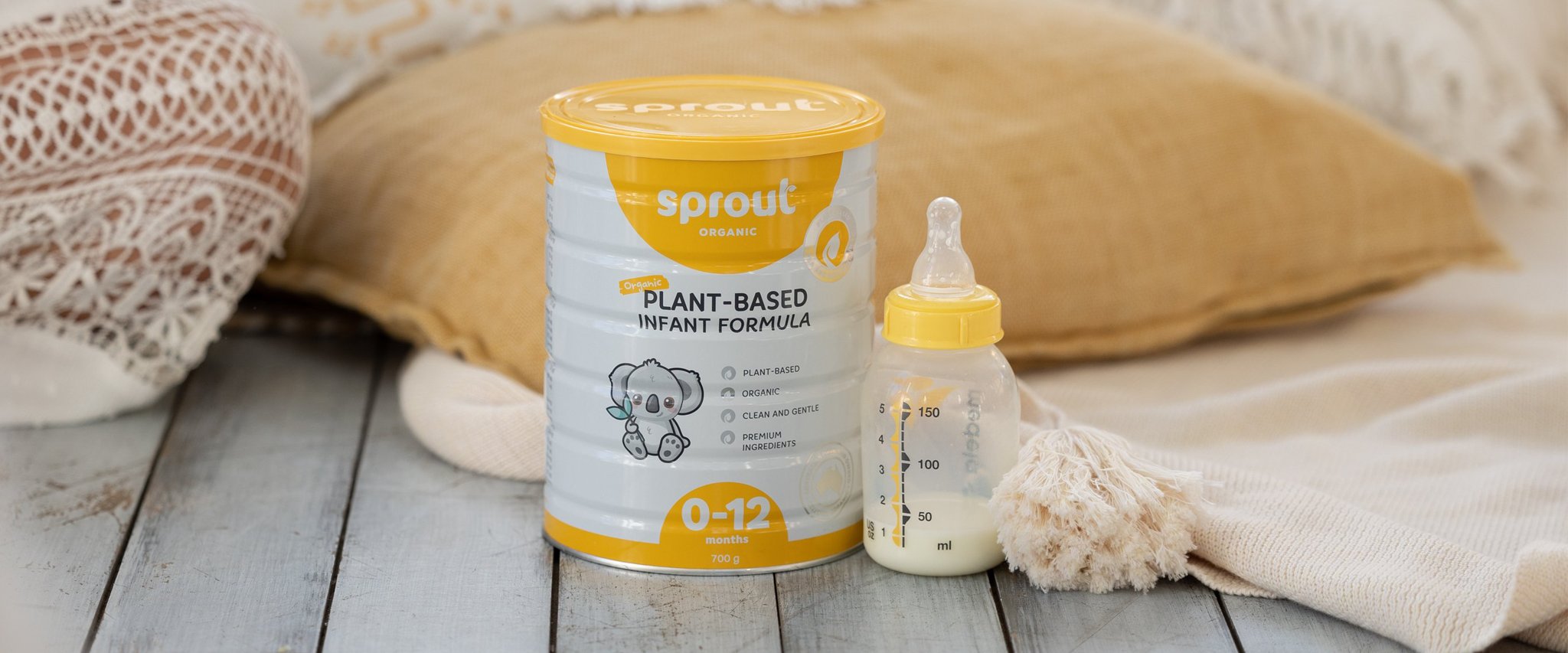Tummy Troubles: How to Soothe Your Gassy Bub
The early weeks of parenthood are often filled with unexpected challenges. One such challenge, though entirely normal, is dealing with the discomfort caused by gas in your bub. Here's a helpful guide to explain why this may occur and how you can soothe your little one’s gas pains.

Why is my bub so gassy?
It's quite common for newborns to experience gas troubles in the early months. Thankfully, as the digestive system develops, gas-related discomfort usually improves at around 4-6 months. Here are some culprits:
- Swallowing Air: For nine months, a foetus develops in a fluid-filled environment, with no need to manage air intake. Birth introduces a dramatic shift, as your bub takes its first breath and begins to interact with air for the very first time. During feeding (bottle and breast) and crying, some air is inevitably swallowed. This air can then be expelled upwards as a burp, or travel through the digestive system, eventually exiting, or becoming trapped gas
- Immature Digestive System: As your baby's digestive system matures and builds its microbiome (gut bugs), it learns to break down milk. Undigested liquid can feed the gut bugs, leading to gas production. While this is a normal and healthy process, excess gas can cause discomfort in newborns with still-developing digestive systems
- Managing Gas: For your little one, as the digestive system is underdeveloped, the process of releasing gas can be a challenge. Effectively passing gas is a skill one of which can take time for your bub to master.
- Dietary Sensitivities: Some bubs may have nutritional sensitivities to certain components in formula or breast milk. This could include difficulty digesting lactose, the sugar found in breast and cow’s milk or a cow’s milk protein allergy (CMPA).

Signs Your Baby Might Be Gassy
- Excessive Crying: Just like for adult, trapped gas is uncomfortable which can result in crying. Importantly, if bub is crying for extended periods, it could be gas related, though there may be other causes related to fussiness. Be sure to check-in with your paediatrician if it persists
- Difficulties Settling: An unusually fussy bub might be extra gassy and need some relief.
- Feeding and Sleeping Difficulties: Trouble sleeping or feeding can be caused by gas, especially if accompanied by other signs.
- Drawing legs up: Pay attention to squirming that suggests discomfort. If bub is pulling legs up to their belly, this can often suggest they are trying to alleviate pain caused by trapped gas.

Soothing Tiny Tummies:
- Frequent Burping: Burp your bub during and after feeding to release swallowed air.
- Slow and Steady Feeding: Take your time during feedings to allow your baby to swallow less air.
- Upright Feeding Positions: Experiment with different positions, like breastfeeding or bottle-feeding with the baby slightly elevated, to aid gas release. For breastfed bubs, check your little one is properly latched to avoid additional air. For bubs who are bottled fed, avoid excessive shaking of the bottles, as this can result in extras bubbles (and thus air) in the milk.
- Anti-Colic Bottles: These bottles can reduce air intake during feeding.
- Gentle Tummy Massage: A gentle tummy massage can help move gas along.
- Tummy Time: Placing your baby on their tummy (with supervision) can help move trapped gas (wait at least 20 minutes after feeding).
- Baby Bicycles: Lay bub on their back and gently cycle legs in a bicycle motion towards the tummy to help expel trapped gas.

I’m breastfeeding - will changing my diet help?
- Some research has suggested a link between a mum’s diet and gas production in breastfed bubs, though at large the data is inconclusive.
- If you suspect that your own diet may be contributing to bubs symptoms, start a food diary to track your intake in relation to bubs symptoms.
- Common gas producing foods include dairy, spicy foods, cruciferous vegetables, garlic and onion. Work with your doctor to consider whether temporary dietary changes may be beneficial.

Can Changing Formula help?
- There's no one-size-fits-all answer when it comes to finding the best formula for gassy babies.
- Switching formulas may be worth considering alongside your medical team.
- If your bub has a suspected lactose intolerance, a formula without cow’s milk may prove a better choice. Consider plant-based options, like Sprout Organic, which avoid lactose altogether.
- In cases of CMPA, a specialised hypoallergenic formula may be necessary, though rice and soy-based formulas may also be considered.
- Always consult your paediatrician or healthcare team before switching formulas. They can guide you towards the best choice for your bub’s specific needs.

Are Infant Gas Drops and Probiotics useful?
- When it comes to infant gas drops, the research is limited.
- The main ingredient, simethicone, shows varied results in studies, but largely it has been found to be ineffective.
- Probiotics are a popular option for infant gas relief, but research in this area is ongoing.
- While some studies suggest specific strains such as Lactobacillus reuteri may provide benefit in exclusively breastfed infants with colic (not specifically gas), more evidence is needed.
- Be sure to discuss the use of medications and probiotics with your paediatrician to weigh potential benefits and risks for your bub.

Colic or Gas – how can I tell the difference?
- ‘Colic’ is a term used to describe intense, prolonged crying episodes (often in the evenings) lasting at least 3 hours, 3 days a week, for 3 weeks, with no clear medical cause.
- Gas, on the other hand, causes shorter periods of fussiness and crying that can usually improve with burping or passing gas.
- The culprit behind ‘colic’ may go beyond swallowed air and an underdeveloped gut, to include things such as overstimulation and an underdeveloped nervous system.
- Always consult your paediatrician for a diagnosis and to find ways to soothe your little one.

When to Call the Doctor
If your baby's gas is accompanied by persistent fussiness, blood in the stool, or vomiting, consult your paediatrician to rule out any underlying medical conditions.
And Remember….
- Every Baby is Unique: What works for one baby might not work for another. Be patient and experiment with different techniques to find what soothes your little one.
- It's a Phase: While gas can be frustrating, it's a temporary issue that most babies outgrow by 4 to 6 months old.
So, take a deep breath, and remember, a little gas is just a part of the wonderful journey of parenthood.
For personalised nutrition and supplementation support, you can find me here or contact me via email at plantbasedfamilynutrition@gmail.com
About the Author: Monica Rundle, is an Accredited Practising Dietitian, and founder of Plant Based Family Nutrition, an online nutrition clinic dedicated to helping families make small, sustainable dietary changes that can make a big difference to their overall health and that of the environment.
Disclaimer: This article is for information and educational purposes only. The information provided does not substitute medical advice. As required, please consult a qualified medical professional relevant to your particular circumstance.






Leave a comment